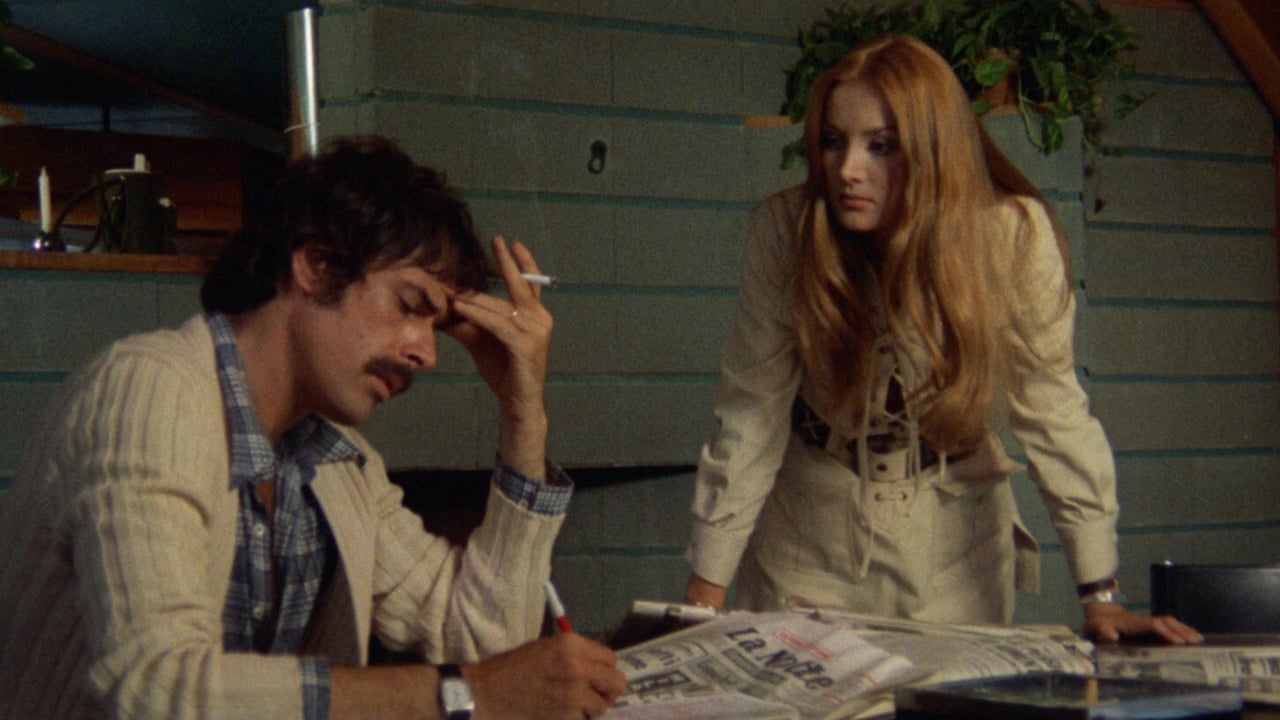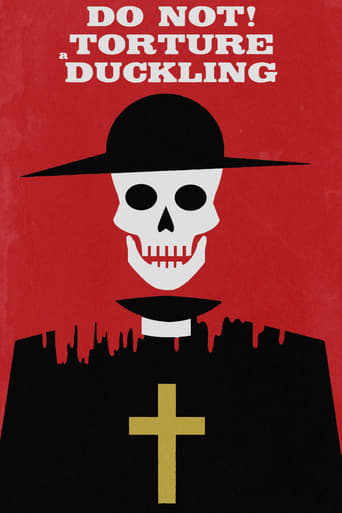Incannerax
What a waste of my time!!!
Redwarmin
This movie is the proof that the world is becoming a sick and dumb place
Supelice
Dreadfully Boring
Haven Kaycee
It is encouraging that the film ends so strongly.Otherwise, it wouldn't have been a particularly memorable film
Wizard-8
This particular effort by director Lucio Fulci is considered by many to be one of the director's best films, if not his best film. Though I haven't seen all of Fulci's movies (yet), what I have seen of his filmography so far does place this movie at the top of the list. It's an interesting giallo movie for several reasons. What is curious about it is that there aren't that many sequences of suspense and terror. Indeed, the movie is curiously missing an underlying feeling of building terror despite the rising body count. Though the few scenes that do qualify as being labelled creepy, such as the cemetery sequence and the climax, do come across both as horrifying and disturbing. And while Fulci does miss with adding a slowly building feeling of terror, he does manage to build a great sense of another kind of atmosphere. You really feel the isolation and primitive living conditions the people are experiencing in this out of the way small town in the countryside.The screenplay (which Fulci co-wrote) also has some interesting themes, condemning the backwards and sometimes cruel way people in rural areas live by. If there is a flaw in the screenplay, it is that the revelation of the killer at the end of the movie is no surprise. That's because the character seemed to have no other purpose in his/her earlier scenes. But while the movie has flaws, it still holds up pretty well for the most part, and is essential viewing for people with interest in Italian genre cinema of the 1970s.
Claudio Carvalho
In the backward village of Accendura, the boy Bruno Lo Casio goes missing and the police inspector and the local commissioner and the village Captain Modesti (Ugo D'Alessio) investigate the case. When his father receives the request of a ransom, the police arrest the local Giuseppe and realize that he is innocent. Then the boys Michele and Tonino are also murdered and the police suspect of the local witch Maciara (Florinda Bolkan), who practices black magic, might be the killer but they find she is also innocent. However the superstitious and ignorant locals brutally kill her. Meanwhile that village is crowded of journalist, including the experienced Andrea Martelli (Tomas Milian) from Rome. He befriends Patrizia (Barbara Bouchet), a daughter of a wealthy entrepreneur that is living in the village after a drug scandal. They meet the village priest Don Alberto Avallone (Marc Poreli), who has a group of boys that plays soccer at the church and is the son of the weird Dona Aurelia Avallone (Irene Papas) that raises her slow six year-old daughter. They believe the child has witnessed the murders and might know who the killer is. "Non si sevizia un paperino" is a violent giallo bu Lucio Fulci, with a story with perversions that are sort of taboo in Hollywood. The three boys and Giuseppe are voyeurs; Patrizia is drug addicted and pedophile; Don Alberto is a serial-killer that wants to keep the innocence of the boys. The graphic violence of the four men against Maciara is impressive. My vote is seven.Title (Brazil): "O Estranho Segredo do Bosque dos Sonhos" ("The Strange Secret of the Woodland of the Dreams")
GL84
Following a child's death in a small-town, a reporter and a woman from a nearby city try to solve the strange killings that continue to be carried out on the children and once they find the demented culprit at the center they try to stop the rampage from continuing.This was quite the enjoyable and underrated Giallo. The biggest factor here for this one is the film flying boldly along and feeling comfortable in it's rather strong and confrontational themes that may be quite uncomfortable. Its initial premise is tied around a serial killer offing children that alone gives it some courage to be unique and brave, but there's more to that here as several scenes here with the opening strangling scenes or a rather chilling scene finding another drowned in a town well, though the fact that this features even more types of similarly controversial scenes is what really sells this one. The type of plot here is one thing, but to have the kids smoking, bullying the town retard and the film's showpiece scene of a fully naked woman openly toying with him, teasing him with her figure and about sleeping with her makes for quite a sleazy, depraved time in a truly memorable scene. Beyond this, the film is a fantastic Giallo that features a lot of stylistic elements usually associated with these as the stalking scenes come off incredibly well regardless of their target. The cemetery stalking here is impressive through the driving rain before the killer strikes, a chase through the open woods out into the mountains to corral a suspect and a later scene where the suspect is viciously and brutally beaten in retaliation for what happened all come together to give this one some really enjoyable scenes. As well, there are some great times in the big brawl at the end which gets fun with the action as well as the location playing into it for some fun here, and these here make this good enough to overcome the flaws. The biggest issue here is the flimsy plot line for a Giallo, where it jumps around to the different suspects here without any reason only to start doing investigative work in the final minutes as the rampage continues despite the supposed death of the killer which starts it up again. This might be a revolutionary ploy for the style, but it causes the film to flip around pretty constantly here. Along with the subject matter being a little tough for some to take, there here are the film's only flaws.Rated UR/R: Graphic Violence, Full Nudity, Graphic Language, children smoking, themes of pedophilia, violence-against-animals and children-in-danger.
insomniac_rod
My first reaction after watching the ending was a standing ovation. This is a fantastic Giallo tale of murder, mystery, and obscure traditions inside a little town that is not everything it seems. The plot surrounds the death of three infants. There are many suspects but the truth is horrifying. It is up to a news reporter and an impressively gorgeous woman to discover who is behind this atrocious murders in a town that hides more than a dark secret.Lucio Fulci has an unfair reputation as a Director of bad taste. OK, he has done many brutal and extremely gore flicks but he has also produced extraordinary Gialli and other memorable films.This film is in my opinion his true masterpiece. The atmosphere is eerie, you can feel you are wandering the town that is afraid of the night. The story is very interesting and thrilling. Also, it is ahead of it's time when displaying taboos such as pedophilia. The acting is surprisingly good. Florinda Bolkan and Barbara Bouchet shine with their roles. Fulci's Direction is solid and demonstrates his peculiar vision towards Horror.There are many memorable moments such as the shocking cemetery murder while Heavy Metal plays in the background, the disturbing yet poetic ending, and many more.This is on the top 5 Gialli ever. I don't want to spoil it because it is an experience that any Horror movie fan should live. It demonstrates that Mr. Fulci did know a lot about Horror and style. His name deserves more recognition among the pantheon of the best Horror Directors. P.S. Barbara Bouchet is possibly the hottest actress ever to appear in a Giallo. Just look at her amazing nude body and her sexy mini skirts.

